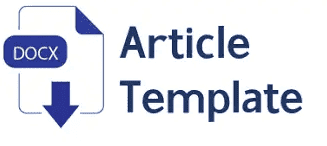Local Wisdom as a Pillar of Sustainable Environmental Policy: An Environmental Governance Perspective
DOI:
https://doi.org/10.71435/639065Keywords:
Local Wisdom, Environmental Governance, Sustainable PolicyAbstract
Purpose: This paper examines local wisdom as a fundamental component in the thinking and implementation of sustainable environmental policy under the broader process of environmental governance. It critiques the dominance of purely technological and top-down approaches, and instead advances hybrid, participatory, and culture-sensitive models.
Subjects and Methods: The study adopts a quantitative correlational research design to examine the statistical relationship between community observation of traditional ecological practices and outlooks on environmental management in selected destinations in Indonesia. A total of 375 respondents were engaged across culturally diverse regions of Bali, South Sulawesi, and West Nusa Tenggara. Using structured Likert-scale questionnaires, the survey measured three central dimensions of local wisdom: ritual practices, intergenerational knowledge transfer, and customary penalties, along with their relationship to governance outcomes.
Results: The results indicate that there is a close and positive correlation between the strength of local wisdom and the effectiveness of environmental governance. Multiple regression analysis further demonstrates that these three elements of local wisdom maintain a statistically significant relationship with governance performance, explaining 53.6% of the observed variance. These findings confirm that conventional environmental behaviors, embedded in culture and tradition, are dynamic and community-based modes of governance that enhance compliance, legitimacy, and conservation effectiveness.
Conclusions: The study contributes to management and public policy literature by providing empirical evidence on the integration of local knowledge systems into formal governance frameworks. By reframing communities as co-governors rather than passive beneficiaries, the paper highlights the strategic importance of local wisdom as a sustainability resource that strengthens policy innovation, institutional performance, and long-term ecological resilience.
References
Agbejule, A., Rapo, J., & Saarikoski, L. (2021). Vertical and horizontal trust and team learning: the role of organizational climate. International Journal of Managing Projects in Business, 14(7), 1425-1443. https://doi.org/10.1007/s43545-024-00952-3
Alberio, M., & Soubirou, M. (2022). How can a cooperative‐based organization of indigenous fisheries foster the resilience to global changes? Lessons learned by coastal communities in eastern Québec. Environmental Policy and Governance, 32(6), 546-559. https://doi.org/10.1002/eet.2025
Aldyan, A., Putri, K. A., Aldyan, R. A., & Alasttal, A. (2024). Local Wisdom-Based Environmental Management Policy in Indonesia: Challenges and Implementation. Journal of Law, Environmental and Justice, 2(3), 332-354. https://doi.org/10.62264/jlej.v2i3.100
Arlt, F. J. (2024). Privilege and Discipline: An Exploration into the Role of Social and Cultural Capital in Cape Town ex-Model C Schools.
Barus, R. N. (2021). Adat Ecology: The Practice of Sasi on Haruku Island, Maluku, Indonesia. Nijmegen Studies in Development and Cultural Change, 99.
Bennett, K. (2023). Translating knowledge in the multilingual paradigm: Beyond epistemicide. Social Science Information, 62(4), 514-532. https://doi.org/10.1177/05390184231222807
Clark, J. K. (2021). Public values and public participation: A case of collaborative governance of a planning process. The American Review of Public Administration, 51(3), 199-212. https://doi.org/10.1177/0275074020956397
Farnault, A., & Sarr, K. (2024). Diversifying sources of finance for water in Africa. OECD Environment Working Papers.
Gopal, A., Chen, P. Y., Oh, W., Xu, S. X., & Sarker, S. (2024). On crafting effective theoretical contributions for empirical papers in economics of information systems: Some editorial reflections. Information Systems Research, 35(3), 917-935. https://doi.org/10.1287/isre.2024.editorial.v35.n3
Haque, M. S. (2022). Paradoxes of universal knowledge in public administration: Exploring the contexts of Africa and Asia. Asian Journal of Political Science, 30(1), 19-34. https://doi.org/10.1080/02185377.2022.2063148
Hezri, A. A., & Dovers, S. R. (2006). Sustainability indicators, policy and governance: Issues for ecological economics. Ecological economics, 60(1), 86-99. https://doi.org/10.1016/j.ecolecon.2005.11.019
Johnston, M. (2024). Systemically Valuable Transaction Costs. Available at SSRN 4684106.
Ma, H., Li, L., Wu, Y., & Wang, J. (2023, September). Bringing Web 3.0 and DAO into Democratic Class: A study of Pedagogy in Higher Education. In International Conference on Blockchain (pp. 21-37). Cham: Springer Nature Switzerland.
Moon, M. J. (2023). Searching for inclusive artificial intelligence for social good: Participatory governance and policy recommendations for making AI more inclusive and benign for society. Public Administration Review, 83(6), 1496-1505. https://doi.org/10.1111/puar.13648
Newig, J., & Fritsch, O. (2009). Environmental governance: participatory, multi‐level–and effective?. Environmental policy and governance, 19(3), 197-214. https://doi.org/10.1002/eet.509
Padilla, M. A. (2023). Protecting Traditional Knowledge and Indigenous Peoples' Rights: The Key to Developing International Environmental Laws That Promote Harmonious Relationships with Nature. Cal. W. Int'l LJ, 54, 1.
Permatasari, A., Dhewanto, W., & Dellyana, D. (2023). The role of traditional knowledge-based dynamic capabilities to improve the sustainable performance of weaving craft in Indonesia. Journal of Enterprising Communities: People and Places in the Global Economy, 17(3), 664-683. https://doi.org/10.1108/JEC-11-2021-0156
Potluka, O. (2021). Roles of formal and informal leadership: civil society leadership interaction with political leadership in local development. In Handbook on city and regional leadership (pp. 91-107). Edward Elgar Publishing.
Scott, A., Holtby, R., East, H., & Lannin, A. (2022). Mainstreaming the Environment: Exploring pathways and narratives to improve policy and decision‐making. People and Nature, 4(1), 201-217. https://doi.org/10.1002/pan3.10276
Shams, K., Barahouei, M., & Priest, K. L. (2024). Enabling social change: a case study of complex adaptive leadership within an informal settlement in Iran. International Journal of Public Leadership, 20(1), 15-35. https://doi.org/10.1108/IJPL-01-2023-0001
Wang, Y., Toseef, M., & Gong, Y. (2021). It process alignment in business strategy: Examining the role of transactional leadership and organization culture. Information, 12(6), 237. https://doi.org/10.3390/info12060237
Wardhani, D. F., Arisanty, D., Nugroho, A., & Utami, U. B. L. (2024). Environmental Education Model Based on Local Wisdom of the Dayak Paramasan Tribe Indonesia. Nature Environment and Pollution Technology, 23(4), 2259-2272. https://doi.org/10.46488/NEPT.2024.v23i04.030
Yu, Y. (2015). An empirical analysis of the relationship between environmental performance and sustainable e-governance in China. Technological forecasting and social change, 96, 71-78. https://doi.org/10.1016/j.techfore.2014.10.009
Zhang, C. (2024). Energy governance in China: A mixture of democratic environmentalism and authoritarian environmentalism. Environmental Policy and Governance, 34(4), 352-362. https://doi.org/10.1002/eet.2089






